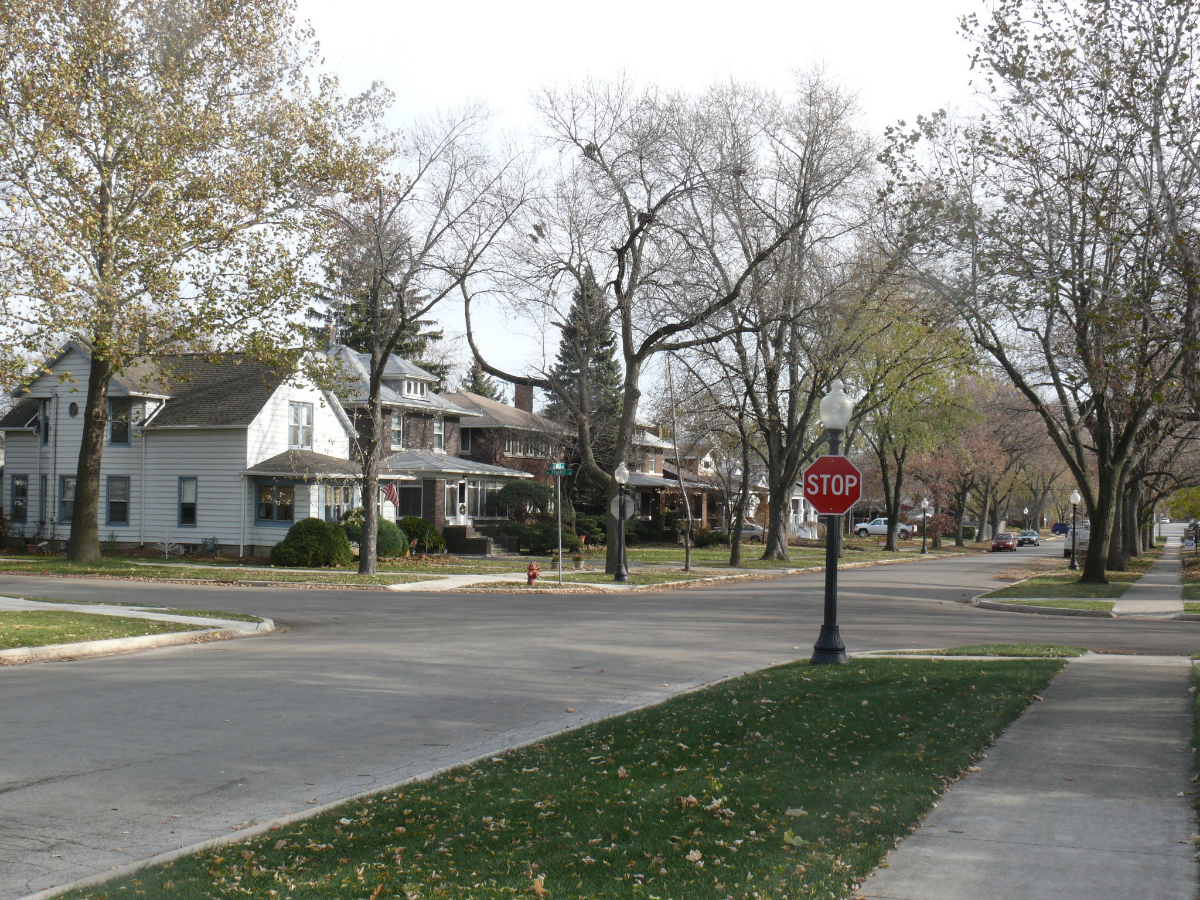Joliet To Tear Down Part Of Controversial Low-Income Housing
By Miles Bryan

Joliet To Tear Down Part Of Controversial Low-Income Housing
By Miles BryanJoliet officials have voted to demolish roughly half of the hundreds of units in a controversial low-income housing complex, likely putting an end to a 13-year saga over what to do with the property.
The agreement approved by Joliet’s City Council Tuesday was made as part of a settlement with the U.S. Department of Housing and Urban Development. Joliet Mayor Robert O’Dekirk said he expects demolition will not start for at least three years.
Formerly named Evergreen Terrace, the buildings now known as Riverwalk Homes are currently home to about 750 people, almost all of whom are African-American and low-income. The complex is adjacent to a wealthy, primarily white neighborhood of Joliet known as the Cathedral Area. City officials that have pushed for its destruction have argued the buildings are rundown and dangerous; residents and lawyers for the Department of Justice have argued that is motivated at least in part by racism.

“There is community. Parents look out for your children, other people’s children … there is a sense of village here,” she said.
Davis said she can accept the city’s decision — but she’s worried now about what will happen to the people who will be displaced.
“That just doesn’t look like, ‘Oh, I have to move,’” she said. “That looks like, ‘Oh, my children have to change schools, we have to completely relocate.’ … It can be a very traumatic situation, for children especially.”
The displaced residents of Riverwalk Homes will receive Section 8 housing vouchers, which subsidize their rent with a private landlord. They’ll join hundreds of other families who recently arrived or will soon arrive on the private market in that area: Joliet razed a large public housing complex in 2016 and plans to demolish another in November. All former residents receive or will qualify for Section 8 vouchers.
Advocates argue a lack of accepting landlords may force these people out of the Joliet area altogether.
“There are a lot of families competing for what is probably a small set of units that qualify for the voucher,” said Kate Walz, senior director of litigation and housing justice at Chicago’s Shriver Center for Poverty Law, which has represented tenants at the Riverwalk Homes since 2005.
“They are going to have a very hard time trying to find housing to stay in Joliet if they want to,” said Walz.
Landlords routinely discriminate against voucher holders, according to a new report prepared for the U.S. Department of Housing and Urban Development. Voucher holders have a harder time in a tight housing market — which Joliet currently has, according to local realtor Karen Robinson.
“When you rent a rental property [in the Will County area], you get dozens of inquiries,” she said. “There isn’t a lot of new construction of rental properties. … Where are they going to go?”
Joliet City Councilman Larry Hug said he was disappointed to find out shortly before the vote Tuesday that the city had no plan for making sure the displaced Riverwalk Residents could find new private housing in Joliet.
“It concerns me for any family that is going to be leaving where they laid down their roots and have a support system,” said Hug. “Who would otherwise not have left, who are essentially being forced to move.”
Michael Simelton, CEO of the Housing Authority of Joliet, said “there may be some challenges” in relocating residents, and they don’t keep track of how many rental units are currently available that accept housing vouchers.
However, Simelton said they have been “pretty successful” relocating past residents of now demolished public housing complexes. Simelton estimates that about 40 percent of the residents of former public housing complexes leave Joliet.
Current Riverwalk Homes resident Teresa Davis said she knows people who had to leave Joliet because they could not find a landlord who accepted their Section 8 vouchers.
She said she hopes public officials find time to think deeply about the residents of Riverwalk Homes, and other complexes like it — not just the fate of the buildings.
“I think that that sometimes falls in the cracks,” she said. “Because everybody is so wrapped up in ‘what are we going to do with the property?’ that quality of life falls by the wayside.”